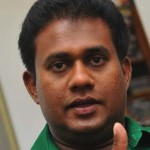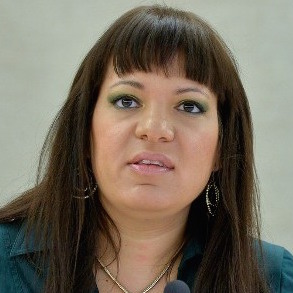The UN Rapporteur’s Remarks On Sri Lanka Are Against Peace & Pluralism

During her ten-day mission to Sri Lanka, the United Nations Special Rapporteur on minority issues, Rita Izsák-Ndiaye, made remarks on SL and its ‘selected cultural minorities’. Those remarks stand against the principle of Pluralism and thus, will not contribute to build sustainable peace in Sri Lanka.
Rita Izsák-Ndiaye said that the SL government “must put in place some urgent, important and concrete measures to clearly demonstrate its political will and commitment to better protect the dignity, identity, equality and right to participation in all walks of life of Sri Lanka’s minorities”.
She further stated, “Efforts by the Government to implement good and inclusive governance must include guarantees that minorities become part of decision-making processes and have a place in state- and provincial administration. Consultations with minority groups on issues affecting them should be regular, institutionalized and systematized.”[1]
Her statement that was supported by her visits to selected cultural communities (as she visited and emphasised on Sri Lankan and Up-Country Tamils, Muslims, Hindus, Burghers, Christians, Telugus, Veddas, Malays, and Sri Lankan Africans) indicates that she concerns about ethnic and some other cultural minorities. Her position, therefore, intends to encourage the SL government to focus on those and similar kind of selected cultural communities as special groups of people that should be politically privileged. Rita Izsák-Ndiaye’s position itself and her emphasise on adopting an institutionalized approach towards selected cultural-minorities are manifestations of either Minoritarianism directly or Majoritarianism indirectly. Thus, as I will demonstrate, her statement and the presumption behind the statement discourage the application of Pluralism in SL government’s efforts to find a sustainable solution to the ethnic problem in Sri Lanka.
The Fundamental Error
The fundamental error of Rita Izsák-Ndiaye is that she encourages the government to broaden up and institutionalise the privileged representation of selected cultural communities. Her approach limits the application of Pluralism as it discriminates non-cultural communities such as labourers, farmers, consumers, fishermen, graduates, non-graduates, urban communities, rural communities, etc. Rita Izsák-Ndiaye’s presumption behind her adopted position further indicates that she even does not consider non-cultural communities of which some of the groups are minorities are also communities that she is missioned to protect (This is because she may be tasked to embark on her mission with a typical UN mandate!).
This fundamental error is made not only by Rita Izsák-Ndiaye, yet by most of us when dealing with the society. We, unintentionally or intentionally, either try to politically privilege or discriminate Minorities or Majorities in the cultural communities, especially when we pay attention to divided societies that based on cultural cleavages such as Ethnicity or Religion. The danger in this approach is that as the constructivists’ view, “often the politicization of ethnic identities is endogenous to the political process and in the absence of political-institutional constraints identities tend to be more fluid”[2]. Therefore, politicised or politically privileged ethnic or religious groups tend to subsume all other groups and communities and often it creates “pathological situations” as it was in Yugoslavia and Rwanda[3].
The Sri Lankan Experience


